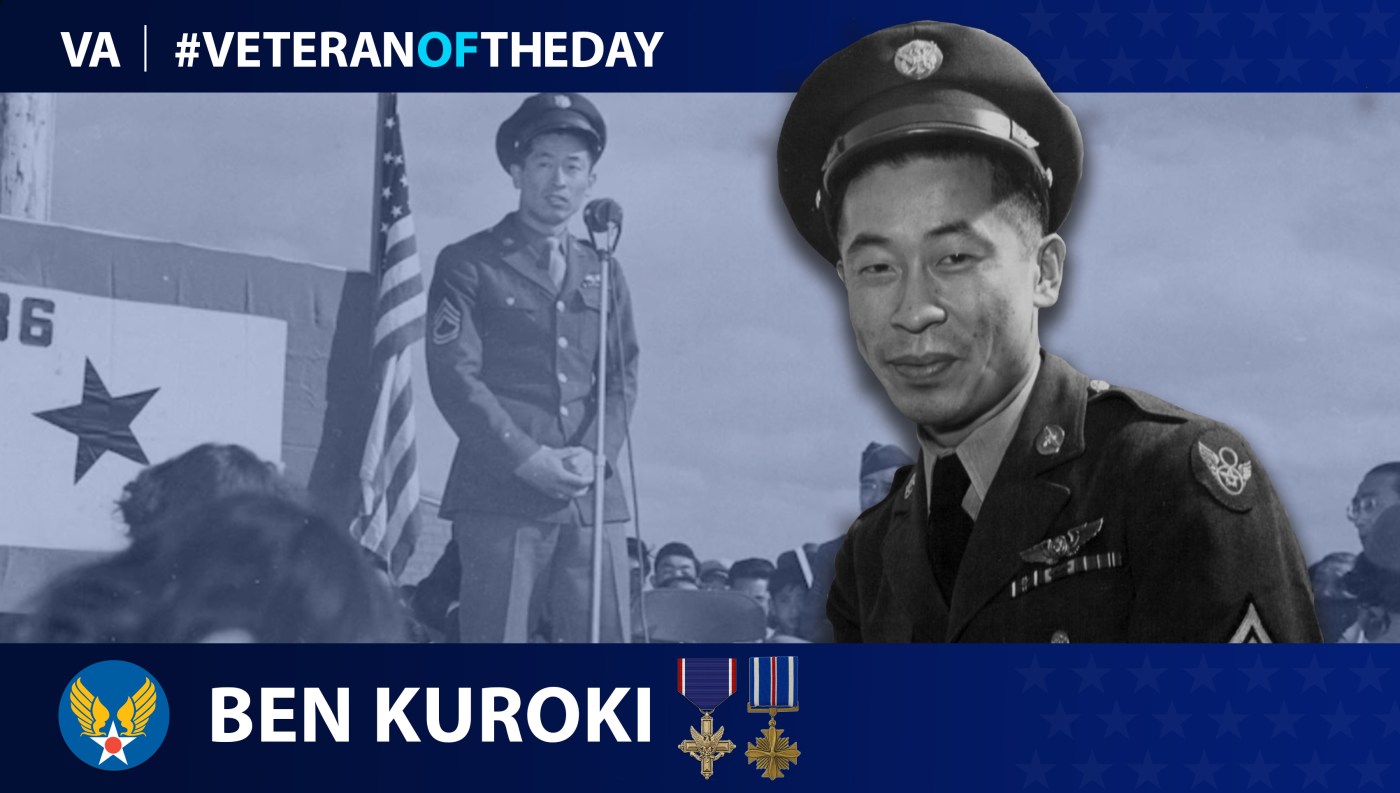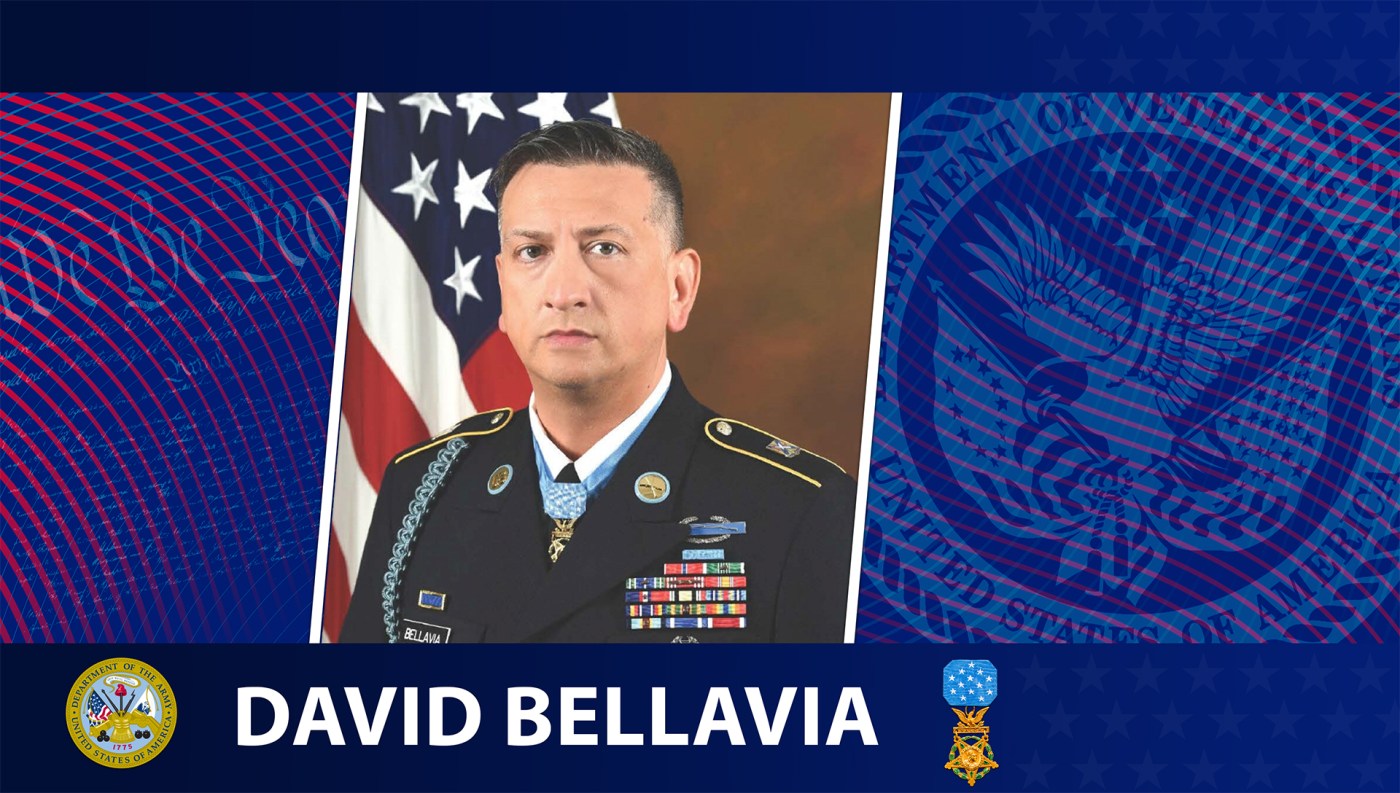
During Asian American and Pacific Islander Heritage Month, today’s #VeteranOfTheDay is Army Air Forces Veteran Ben Kuroki, who in World War II as a gunner.
Ben Kuroki was born in May 1917 near Hershey, Nebraska. He was the son of Japanese immigrants and grew up with nine brothers and sisters. After the attack on Pearl Harbor in 1941, Kuroki and his brother Fred wanted to enlist in the Army. They drove to the recruiting office in North Platte, Nebraska, but recruiters turned them away because they were Japanese Americans. Undeterred, Kuroki and his brother drove another 150 miles to a different recruiting office, where they finally enlisted.
Kuroki began his journey in the Army Air Forces at Sheppard Air Force Base near Wichita Falls, Texas, where he and his brother completed basic training. Initially, Kuroki wanted to be a pilot. Due to the Army banning soldiers of Japanese descent from serving in bomber crews, the Army assigned Kuroki clerical duties. Later the same year he would get his chance. Slipping through the filter that placed Japanese American soldiers into segregated units, he transferred to the 93rd Bombardment Group as a gunner.
Kuroki deployed to Europe in December 1942, where he took part in 30 missions taking on extra missions because he wanted to prove his loyalty to his country. In August 1943, Kuroki took part in a mission to bomb critical Nazi oil fields in Ploesti, Romania. It was a mission that saw 310 fliers from his group killed during the battle. For his acts of bravery during the war, his crewmates nicknamed him “Most Honorable Son.”
Despite his service in Europe, Kuroki’s experiences with racism did not stop. When he returned to the U.S., he was pressured into becoming a recruiter for Japanese Americans living in the internment camps. This was a role he quickly found uncomfortable as it only worked to alienate him from other Japanese Americans who distrusted him.
In December 1943 Kuroki deployed to Japan. At the time Japanese Americans could not serve in the Pacific theater, but through special permission from the War Department, he deployed. Kuroki served with the 505th Bombardment Group at Tinian Island. He took part in 28 combat missions, becoming the only Japanese American to fly in combat against Japan. He was also one of the few airmen to fight in both the European and Pacific theaters.
Once the war was over, Kuroki began several self-funded speaking tours fighting against racism. After his tours finished, he attended the University of Nebraska where he earned a journalism degree. Kuroki moved on to work for numerous newspapers continuing his fight against racism.
During his service, Kuroki received three Distinguished Flying Crosses and an Air Medal with five oak leaf clusters. In 2005, he received a Distinguished Service Medal. When asked about his service Kuroki said he had to “fight like hell for the right to fight for my own country.”
We honor his service.
Nominate a Veteran for #VeteranOfTheDay
Do you want to light up the face of a special Veteran? Have you been wondering how to tell your Veteran they are special to you? VA’s #VeteranOfTheDay social media feature is an opportunity to highlight your Veteran and his/her service.
It’s easy to nominate a Veteran. Visit our blog post about nominating to learn how to create the best submission.
Contributors
Writer:
Editor:
Fact checker:
Graphic artist: Chalsi Lee
Topics in this story
More Stories
This week’s Honoring Veterans Spotlight honors the service of Army Veteran David Bellavia, who received a Medal of Honor from the Iraq War’s deadliest operation, the Second Battle of Fallujah.
This week’s Honoring Veterans Spotlight honors the service of Army Veteran Scotty Hasting, who served in Afghanistan.
This week’s Honoring Veterans Spotlight honors the service of Army Veteran Roy Sheldon, who served in 97th General Hospital in Frankfurt, Germany.






